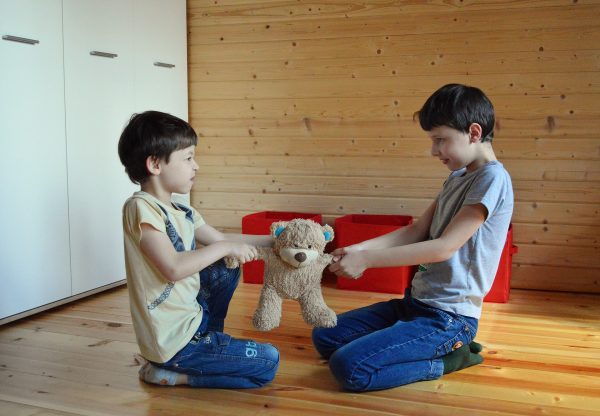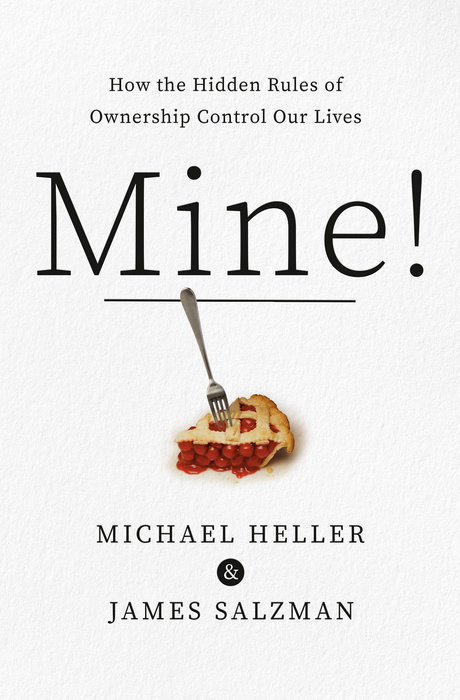Every year, fights break out on airplanes. They happen between the people who lean back in their seats, and the people who get their knees smooshed. Sometimes planes have to be grounded because of these arguments.
If you think about it, these arguments are the result of confusion. Both people paid for a seat on the airplane, but it’s unclear who owns the space behind it. Jim Salzman and Michael Heller are law professors and the authors of a new book called Mine! How the Hidden Rules of Ownership Control Our Lives. They write about these common instances where ownership is not clear cut.

According to Salzman and Heller, confusing ownership rules are often the result of poor ownership design. This is true not just for airplane seats, but also for battles over digital privacy, climate change, and wealth inequality.




Comments (7)
Share
So wait, do you buy the person in front of you a drink proactively, before the seat is reclined, or do you pair that offer with your request to put the seat back up? This is important! 😉
Hi Roman – Interesting show! As long as you’re thinking about the idea of ownership, you might want to consider this episode of Ezra Klein’s podcast, https://pca.st/episode/423d25dc-3d2f-4c11-b160-0f5f223fdd51. He was discussing ownership this week, too, but from a different POV. Like maybe the whole western idea of ownership is not the only, or the best, way a society might function. Seems to me the underlying beliefs regarding what we’re “buying” are responsible for a host of social problems. I’ve been enjoying 99PI for years. Thank you!
The problem with your analysis of airplane seats is that you’re assuming the natural or default position of the seat is upright, and the choice is to make it more recumbent. But suppose we thought — as I do — that the natural position is reclining, and the button is there for the comparatively rare episodes of ingress and egress, and for those who wish, contrary to standard practice, to sit upright?
For me, this isn’t even an issue: if you were sitting in front of me, and tried to recline, the very laws of physics would prevent your seat from occupying the same space as my knees, and the longer it took you to realize that, the less chance there would be for an amicable resolution. Reclining seats in any form of transportation are, in my opinion, strictly optional: if the person behind you is small enough and/or is also reclining, you’re free to do it. Unless the vehicle is designed for both reclining AND enough space for the person behind, “ownership” is moot,
Ok this was interesting, but something your guests didn’t talk about is how ownership laws in the courts were biased towards European definitions of agriculture. Plenty of native tribes did practice agriculture and land ownership amongst themselves, but colonizers overlooked that in favor of their own definitions of European styles of agriculture. How could natives bring their arguments to a court that didn’t recognize native definitions and practices?
This sounds like the same argument used against Palestinian land ownership. It is not true that ownership rules were arbitrary among civilizations – even under Roman colonialism, local land ownership in the cities and villages they conquered was recognized, even if taxation laws varied. This is reflected in the fact that plenty of city names actually preceded Roman rule, and hence their names were romanized but not completely changed. This episode would be better with greater historical context and nuance instead of being used as settler colonial apologism.
Seems a mistake to talk about the subject of ownership in America and not talk about slavery.
You’ve done it again, Roman!
What a fabulous episode. Kudos to Michael and James for writing such a brilliant book!
Hadn’t been this excited since I first read freakonomics :)